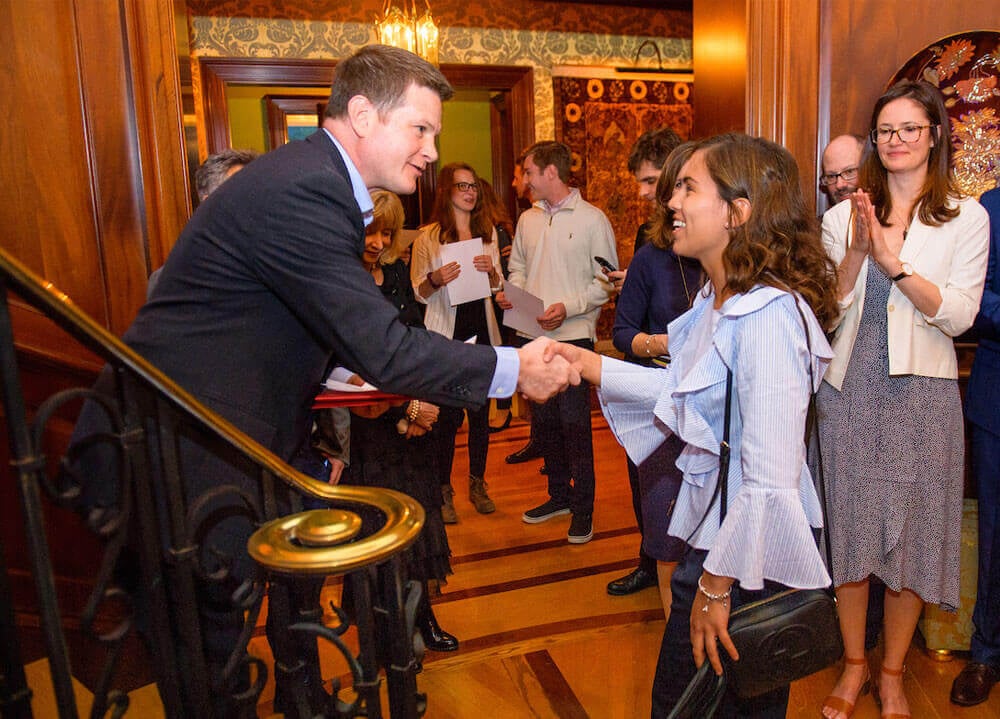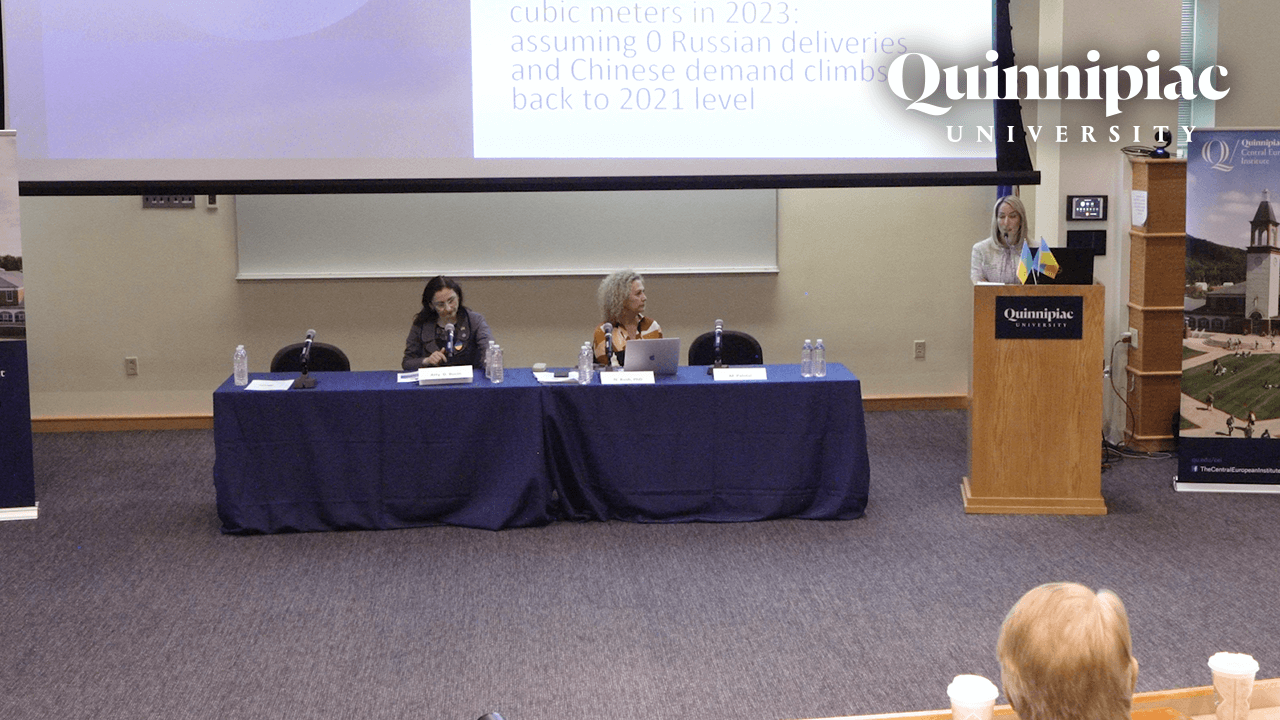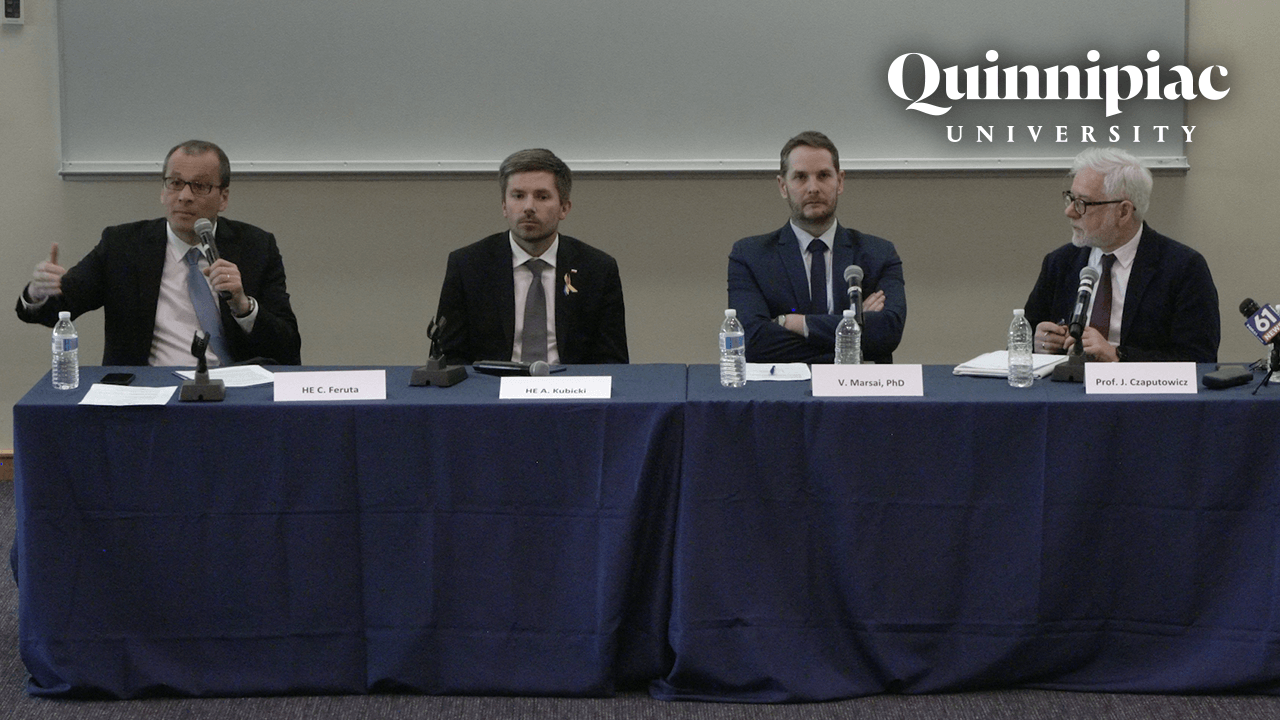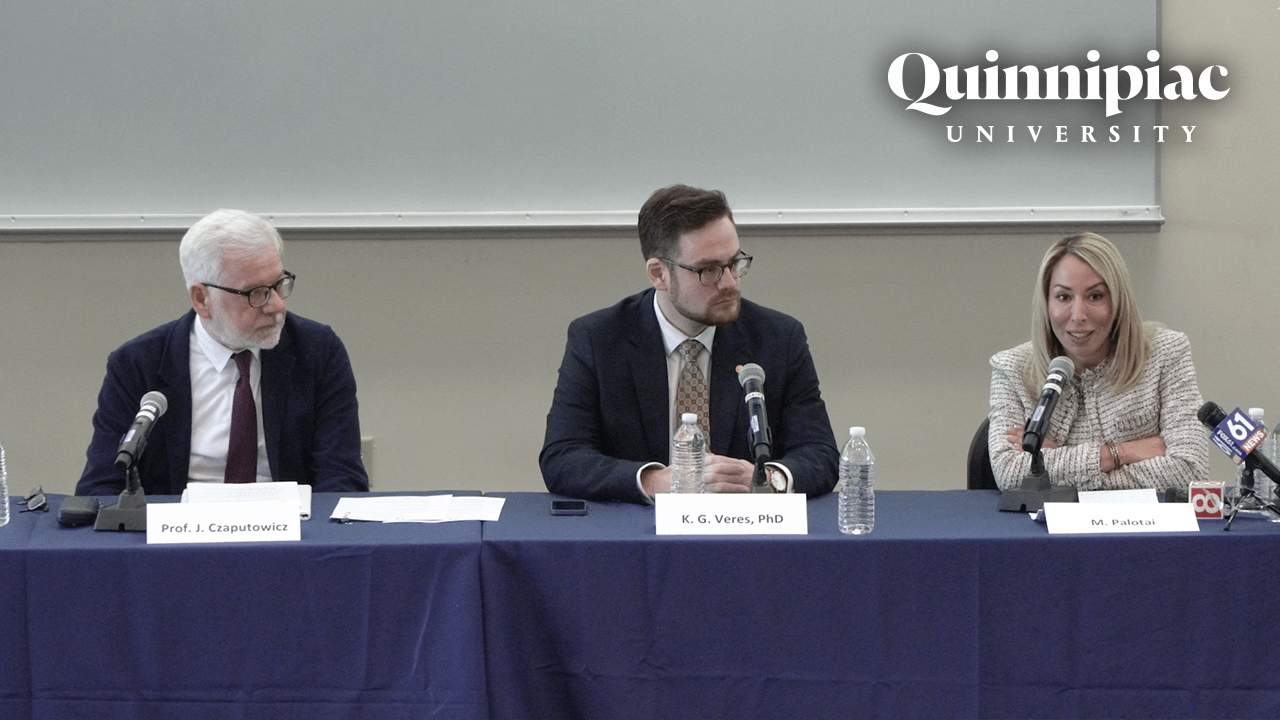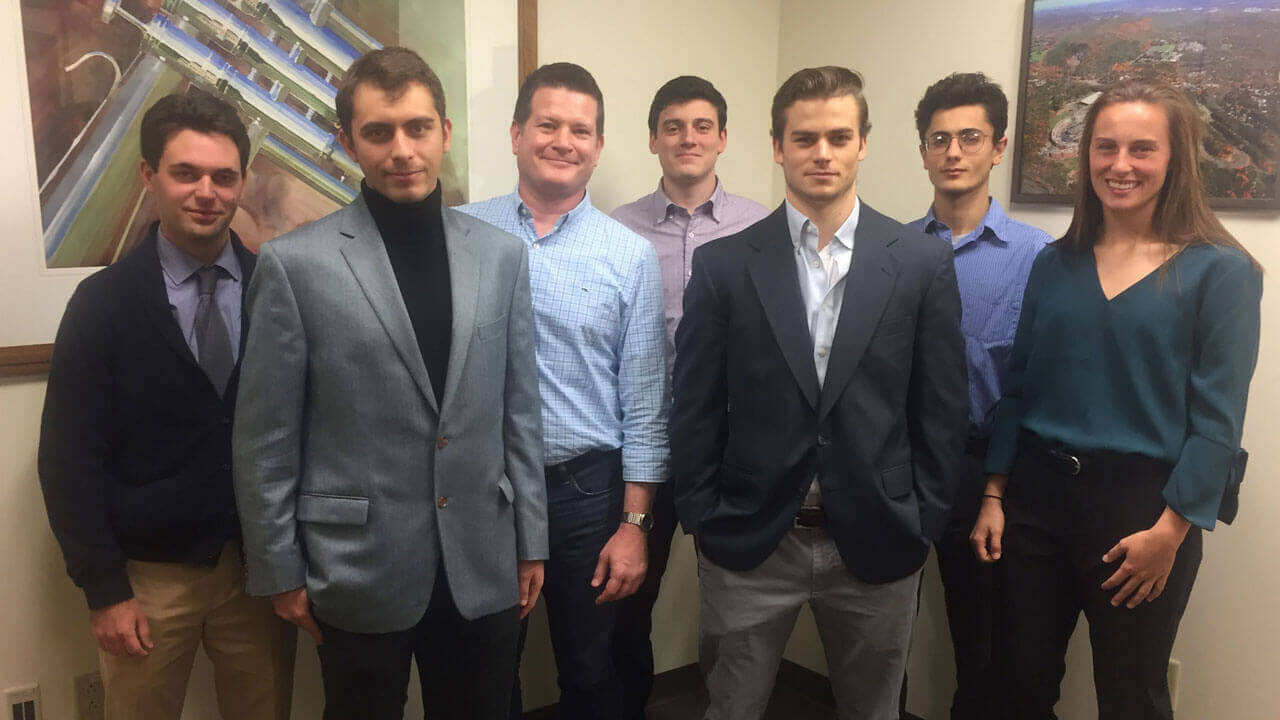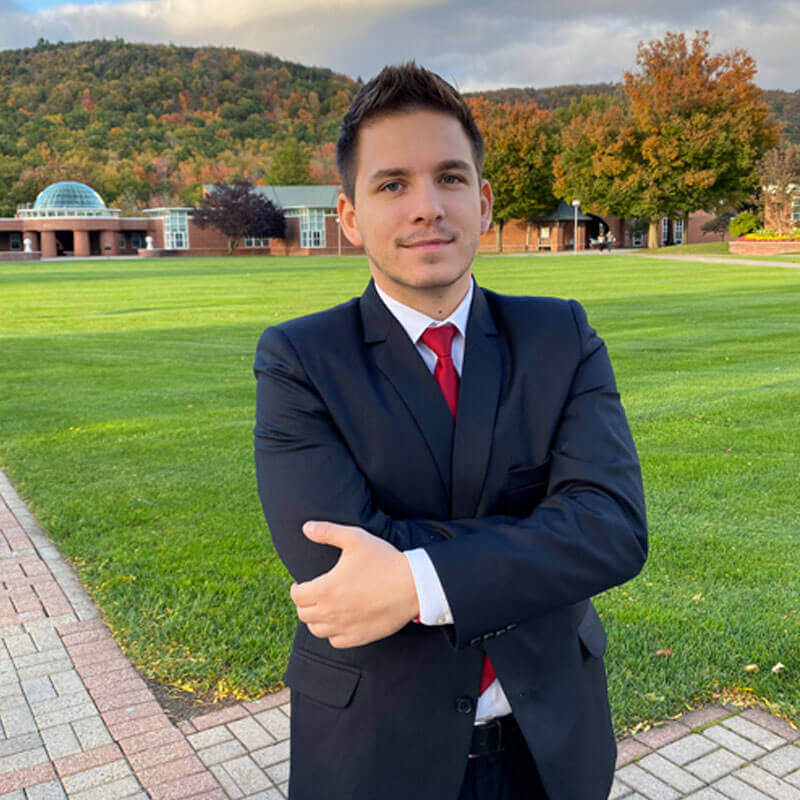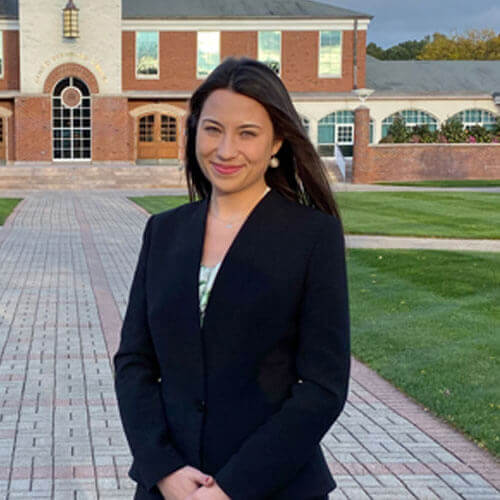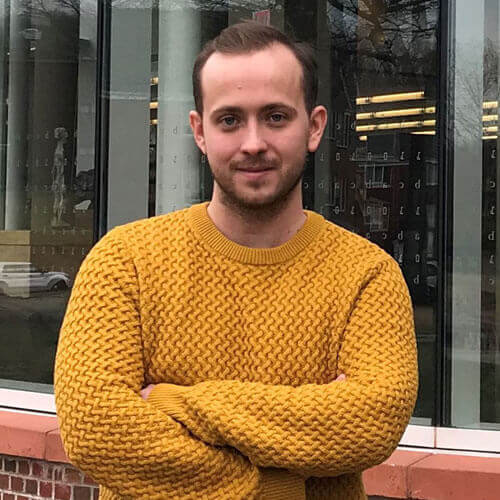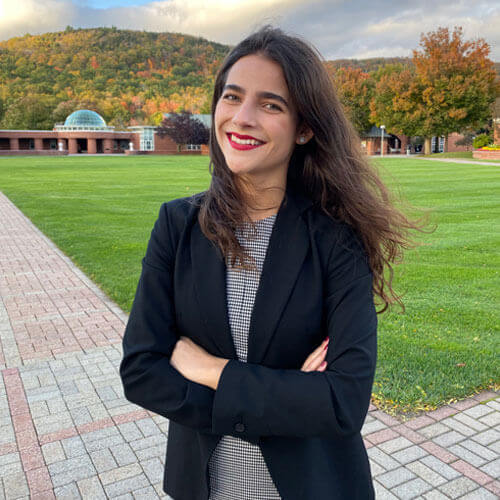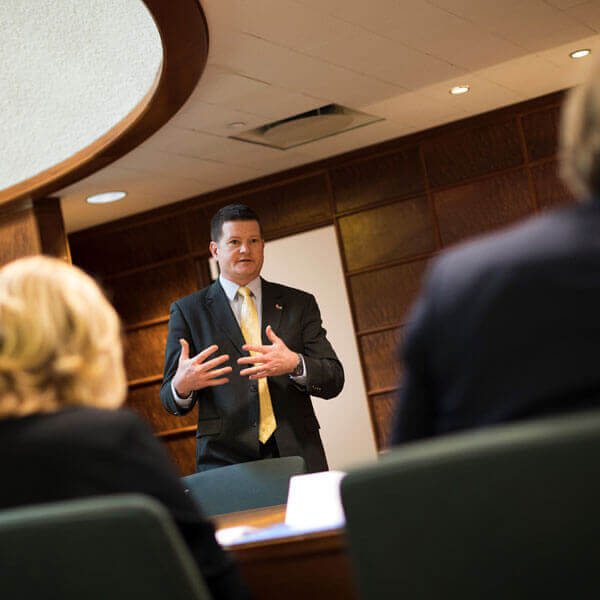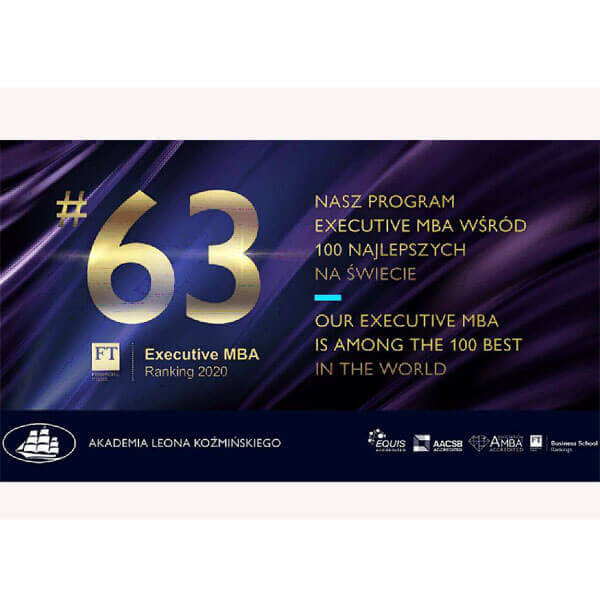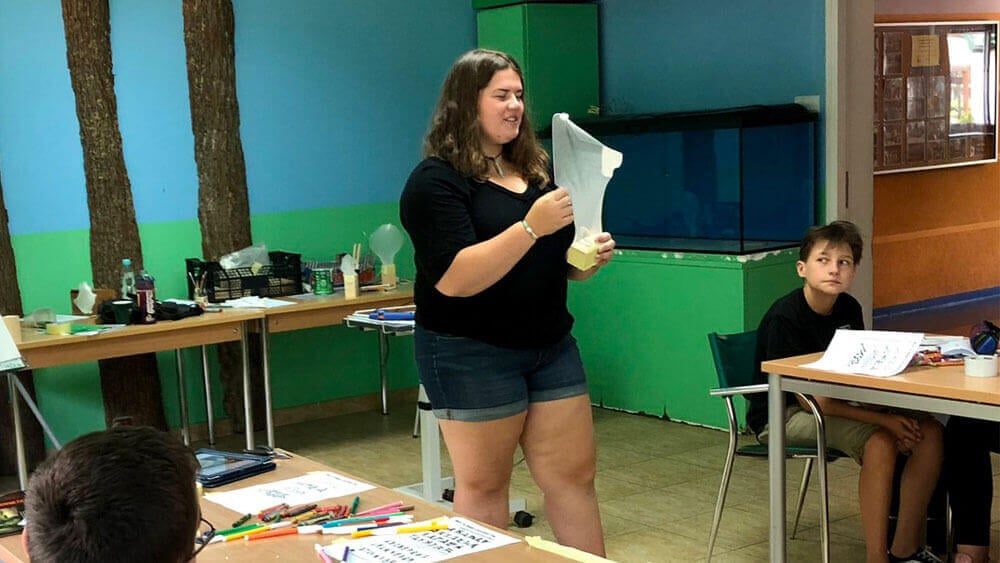
World-Sized Classroom
Two members of Bobcat Nation participated in this year’s Teaching English in Poland program through the Kosciuszko Foundation.
Samantha Paradee ’18, MS ’19, photographed above, is currently working as an assistant teacher at a camp in central Poland.
“This program is incredibly beneficial to my future career as I am interested in teaching English around the world,” she said. “The program allows me to get started on that dream before I am even finished with college.”
Quinnipiac faculty member Katarzyna Kowalczyk, who teaches modern languages, literatures and cultures at Quinnipiac, recently taught a two-week camp for 7- to 18-year-olds centering on the English language and American culture in the central Polish city of Minsk Mazowiecki.


